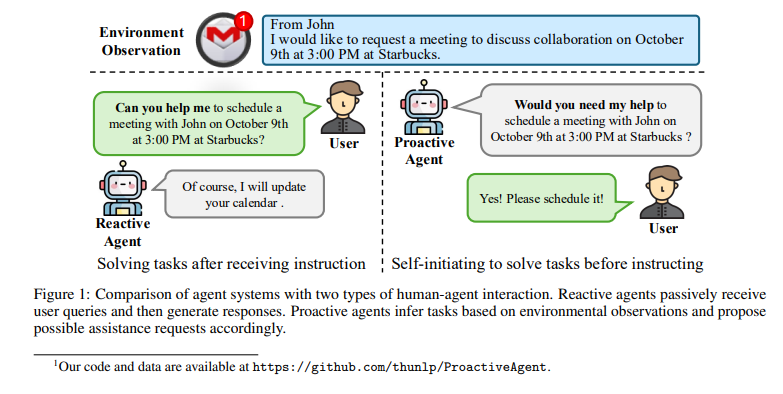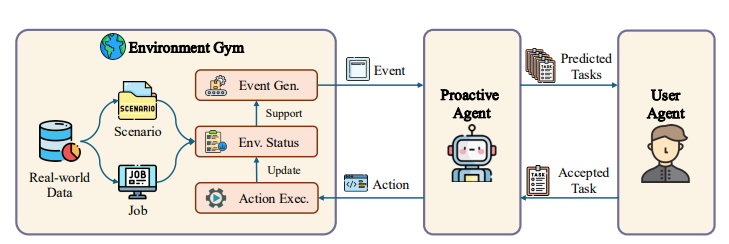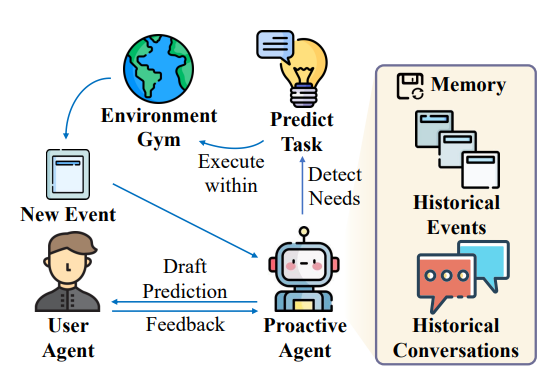In recent years, large language models represented by ChatGPT have sparked a new wave in the field of AI. These powerful language models can not only understand human instructions but also plan, explore environments, and utilize tools to solve complex tasks, showcasing immense potential in areas such as robotics, personal assistants, and process automation.

However, most existing AI systems are passive and require explicit human instructions to perform tasks. For example, to schedule a meeting, you still have to manually input the time, location, and even list all the attendees, which can be more cumbersome than doing it yourself!
Imagine receiving an email from a colleague suggesting a meeting. A passive AI would wait for you to explicitly instruct it to arrange the meeting. In contrast, a proactive AI would notice the email and take the initiative to suggest scheduling the meeting. This proactivity not only significantly reduces the cognitive load on users but also helps identify potential needs that humans may not have explicitly expressed.

To address the issue of overly passive AI assistants, Tsinghua University and Mianbi Intelligence have teamed up to propose a brand-new AI agent that is no longer a "machine that merely obeys commands," but rather one that can "predict needs" and proactively help you organize tasks before you even say a word!
How does this "magical" AI agent achieve this? The secret weapon is the ProactiveBench dataset! This dataset is like an "encyclopedia" documenting various human activities, containing every letter you type at your computer, every link you click, and even the content you copy and paste!

Using this dataset, researchers trained a reward model, which acts like a "supercomputer simulating the human brain," capable of determining whether the AI agent's behavior aligns with human expectations. If the AI agent performs well, it receives rewards; otherwise, it gets penalized. After repeated training, the AI agent can predict your needs based on your behavior and offer assistance proactively when you need it.
For instance, when you receive an email from a colleague suggesting a meeting, this "predictive" AI agent will automatically recognize the email content and proactively ask if you would like to schedule the meeting. If you agree, it will automatically arrange the time and location and even send out meeting invitations! Isn't it much "smarter" than current AI assistants?
Experimental results show that AI agents trained with the ProactiveBench dataset perform exceptionally well; for example, the Qwen2-7B-Instruct model achieved an F1 score of 66.47% in providing proactive assistance, surpassing all open-source and closed-source models!
Although this "predictive" AI agent is still in the research phase, it brings new hope for the future of human-machine collaboration. We believe that in the near future, we will have a truly "understanding" AI assistant that not only "obeys commands" but also proactively helps solve various problems, making your life easier and more convenient!
Paper link: https://arxiv.org/pdf/2410.12361










